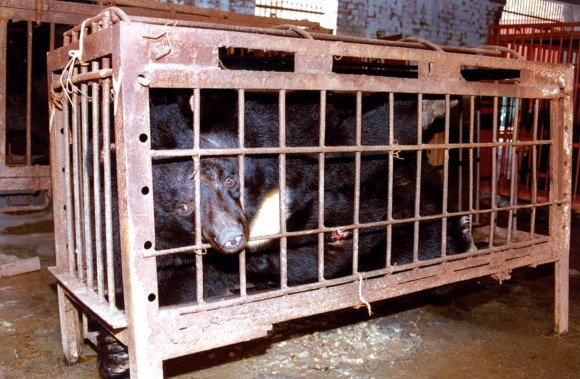Sideways by Deborah Loh | The Nut Graph
 FED up with humans and their politics, I write today about animals. Unlike our politics, which goes in circles based on tit-for-tat rhetoric and racial fear-mongering, there has been real progress in wildlife conservation. Soon we will have a new law that some wildlife protection groups say is the best they’ve seen in a long time for Malaysia, a major player in illegal animal trade.
FED up with humans and their politics, I write today about animals. Unlike our politics, which goes in circles based on tit-for-tat rhetoric and racial fear-mongering, there has been real progress in wildlife conservation. Soon we will have a new law that some wildlife protection groups say is the best they’ve seen in a long time for Malaysia, a major player in illegal animal trade.
The current law, the Protection of Wildlife Act 1972, has been as effective in deterring wildlife hunting and trade as a stuffed toy tiger. It is outdated with its loopholes and too-lenient sentences.
Parliament is scheduled to vote on the Wildlife Conservation Bill 2010 before the current sitting ends on 15 July 2010. It will replace the 1972 Act and has been a long time in the making. What is worth noting about this new law?
More deterrents
Some key thrusts in the Bill are:
Other animals that will enjoy better protection include commonly traded ones like pangolins, and certain birds including the hornbill. So will young species and females on the totally protected list.
Mandatory jail has also been extended to include the offence of laying snares to trap wildlife. The penalty involves up to two years in prison, plus a fine of between RM50,000 and RM100,000.
 Mere possession of a just one snare will also be punishable by a maximum fine of RM100,000. Under the current law, you have to be caught with 25 snares or more in order to face mandatory jail.
Mere possession of a just one snare will also be punishable by a maximum fine of RM100,000. Under the current law, you have to be caught with 25 snares or more in order to face mandatory jail.
Wider scope
The new Bill makes “derivates” of totally protected species illegal, whereas the current Act only covers recognisable animal parts. It means enforcement officers will be able to act against traditional medicine sellers who carry products containing such derivatives. They can be fined a maximum of RM20,000, or jailed up to one year, or both.
The new Bill also places the burden of proof on a suspect. If you are caught trying to use a decoy to bait an animal, or for merely possessing a snare, it’s assumed that you’re trying to hunt wildlife. If any animal part or derivative is found on your premises, it’s assumed that these items are in your possession.
Zoos, animal exhibitions and circuses will also be covered by the new law. Currently, operation permits for these businesses are issued by the local council. But in the new law, they must be licensed by the Wildlife Department in order to set up operations, or risk a maximum RM70,000 fine and/or a maximum three-year jail term. These operations are also required to get additional permits if they use totally protected wildlife. The penalty for not adhering to these requirements is a maximum fine of RM100,000, or jail.
Links with other crimes
It has been a long road for non-governmental organisations (NGOs) who pushed to get the above provisions included in the new Bill. NGOs submitted their proposals for the Bill twice to the Natural Resources and Environment Ministry, first in 2005 and again in 2008.
For certain, the new law is not a perfect law. But it’s far tighter than the current 1976 Act. It at least makes wildlife crimes “as bad” as other criminal offences, with stiffer fines and mandatory jail sentences. Wildlife activists have often lamented that the lenient penalties in the current law did not inspire judges to mete out the maximum sentence.
Hopefully, the new Bill will impress upon the courts the severity of wildlife crimes. Not just judges, but the public too must realise that the lucrative illegal wildlife trade is a key source of funding for other organised crime. The Asean Wildlfe Enforcement Network has noted links between wildlife, drug and human trafficking. In some instances, the sex trade upgrades its services by offering bear and tiger derivatives as aphrodisiacs. Overall, the black market value of wildlife trafficking was estimated to be US$40 million in 2009.
 There are other big-picture consequences when wildlife is depleted. The unbalancing of biological ecosystems can disrupt food and water supply. The movement of exotic wildlife can spread previously unknown disease from animals to humans.
There are other big-picture consequences when wildlife is depleted. The unbalancing of biological ecosystems can disrupt food and water supply. The movement of exotic wildlife can spread previously unknown disease from animals to humans.
But the best laws will amount to little if enforcement is weak. With their scarce personnel, the Wildlife Department is not only up against vast tracts of forest where hunters can hide, but against syndicates using M16 guns and guerilla-like tactics to avoid detection.
With violent trends in the wildlife trade becoming more serious, and its links with other black market crimes more apparent, it’s clear that the scope of wildlife protection goes beyond one ministry. How is the movement of such firearms regulated, and what is the role of the national security forces? How do we prevent People’s Volunteer Corp (Rela) members – who are issued with guns – from mishandling human-wildlife conflict? How do we curb their involvement in poaching?
Clearly, amending our laws to make it more stringent is a step in the right direction. But it will require much more from consumers and the government if we are going to successfully protect our wildlife heritage – and Malaysia’s reputation.

(Tiger by vierdrie / sxc.hu; crosshairs public domain)
The current law, the Protection of Wildlife Act 1972, has been as effective in deterring wildlife hunting and trade as a stuffed toy tiger. It is outdated with its loopholes and too-lenient sentences.
Parliament is scheduled to vote on the Wildlife Conservation Bill 2010 before the current sitting ends on 15 July 2010. It will replace the 1972 Act and has been a long time in the making. What is worth noting about this new law?
More deterrents
Some key thrusts in the Bill are:
- higher fines across the board, with the maximum fine of RM15,000 under the 1972 Act being raised to RM500,000;
- mandatory jail terms for a wider variety of offences;
- a broader definition of snares used to trap animals;
- distinguishing the derivatives of animals as an illegal item;
- mandatory permits from the Wildlife Department to open zoos or animal displays; and,
- presumption of offence and laying the burden of proof on the suspect.
Other animals that will enjoy better protection include commonly traded ones like pangolins, and certain birds including the hornbill. So will young species and females on the totally protected list.
Mandatory jail has also been extended to include the offence of laying snares to trap wildlife. The penalty involves up to two years in prison, plus a fine of between RM50,000 and RM100,000.

Pangolin (Public domain | Wiki commons)
Wider scope
The new Bill makes “derivates” of totally protected species illegal, whereas the current Act only covers recognisable animal parts. It means enforcement officers will be able to act against traditional medicine sellers who carry products containing such derivatives. They can be fined a maximum of RM20,000, or jailed up to one year, or both.
The new Bill also places the burden of proof on a suspect. If you are caught trying to use a decoy to bait an animal, or for merely possessing a snare, it’s assumed that you’re trying to hunt wildlife. If any animal part or derivative is found on your premises, it’s assumed that these items are in your possession.
Zoos, animal exhibitions and circuses will also be covered by the new law. Currently, operation permits for these businesses are issued by the local council. But in the new law, they must be licensed by the Wildlife Department in order to set up operations, or risk a maximum RM70,000 fine and/or a maximum three-year jail term. These operations are also required to get additional permits if they use totally protected wildlife. The penalty for not adhering to these requirements is a maximum fine of RM100,000, or jail.
Links with other crimes
It has been a long road for non-governmental organisations (NGOs) who pushed to get the above provisions included in the new Bill. NGOs submitted their proposals for the Bill twice to the Natural Resources and Environment Ministry, first in 2005 and again in 2008.
For certain, the new law is not a perfect law. But it’s far tighter than the current 1976 Act. It at least makes wildlife crimes “as bad” as other criminal offences, with stiffer fines and mandatory jail sentences. Wildlife activists have often lamented that the lenient penalties in the current law did not inspire judges to mete out the maximum sentence.
Hopefully, the new Bill will impress upon the courts the severity of wildlife crimes. Not just judges, but the public too must realise that the lucrative illegal wildlife trade is a key source of funding for other organised crime. The Asean Wildlfe Enforcement Network has noted links between wildlife, drug and human trafficking. In some instances, the sex trade upgrades its services by offering bear and tiger derivatives as aphrodisiacs. Overall, the black market value of wildlife trafficking was estimated to be US$40 million in 2009.

This bear was fortunately rescued and released from captivity (Source: neavs.org)
But the best laws will amount to little if enforcement is weak. With their scarce personnel, the Wildlife Department is not only up against vast tracts of forest where hunters can hide, but against syndicates using M16 guns and guerilla-like tactics to avoid detection.
With violent trends in the wildlife trade becoming more serious, and its links with other black market crimes more apparent, it’s clear that the scope of wildlife protection goes beyond one ministry. How is the movement of such firearms regulated, and what is the role of the national security forces? How do we prevent People’s Volunteer Corp (Rela) members – who are issued with guns – from mishandling human-wildlife conflict? How do we curb their involvement in poaching?
Clearly, amending our laws to make it more stringent is a step in the right direction. But it will require much more from consumers and the government if we are going to successfully protect our wildlife heritage – and Malaysia’s reputation.

No comments:
Post a Comment